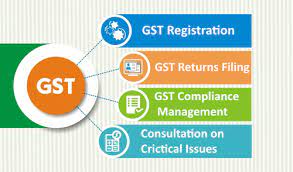What is GST administered ?
GST Reconciliation..
Detailed dashboard enhances visibility of ITC discrepancies at both summary and supplier level
Action oriented, segmented information like matched documents, missing documents, and mismatched documents
Automatic system matching fastens reconciliation process
Multiple options to resolve apparent mismatches due to inconsistent document details
Hold invoices option, in line with GST provision, to defer ITC claims
No separate reconciliation for amendments as same is incorporated with the original return data
Enables precise and accurate claim ITC
Automatic mail triggering mechanism notifies discrepancies to vendors, captures and forwards replies from vendors
Separate and independent setting to configure features
Various useful reports to enable better and timely decision making.

How Is GST Administered In India?
Ans. GST Is Divided Into Two Parts In India’s Federal Structure: Central GST (CGST) And State GST (SGST). GST Will Be Levied Across The Value Chain By Both The Centre And The States At The Same Time. Every Provision Of Goods And Services Will Be Subject To Taxation. On All Transactions Within A State, The Centre Would Levy And Collect The Central Goods And Services Tax (CGST), While The States Would Tax And Collect The State Goods And Services Tax (SGST). At Each Stage, The CGST Input Tax Credit Would Be Available For Discharging The CGST Duty On The Output. Similarly, SGST Paid On Inputs Would Be Allowed To Be Used To Pay SGST On Output. There Would Be No Credit Cross-Utilization Allowed.
GST Registration is applicable on all goods and services except Petroleum products as of now. Goods & Service Tax (GST) is a consolidated tax, which essentially means that State and Central Indirect taxes have been merged. Entire country now operates under a uniform tax system. It now replaces service tax, excise, VAT, entertainment tax, luxury tax, octroi, CST etc.
GST Registration Process in India is completely online. It requires no manual intervention or no physical paper submissions. A very simple procedure has been prescribed for GST Registration.
Benefits…
Persons who wish to register voluntarily have many advantages. They can avail input tax credit. They can make interstate transactions without any restrictions. They may register on e-commerce websites and grow business. In all, they will have a competitive advantage over other un-registered businesses.
Tag:#Consultant, #GST, #LegalServices
